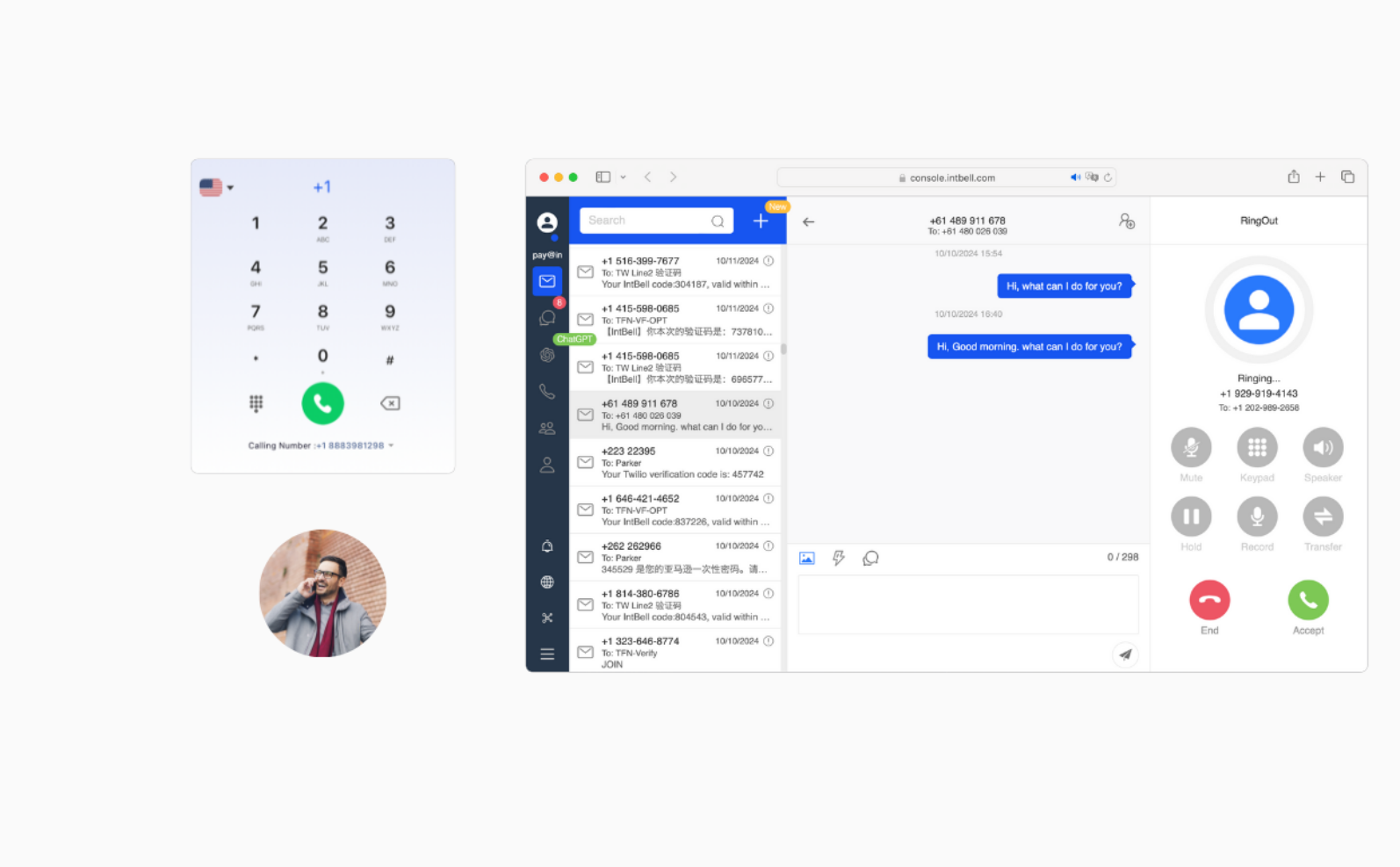When a familiar local number appears on a customer’s mobile phone screen, their psychological reaction undergoes a fundamental change. International numbers are often labeled as “unfamiliar,” “sales-related,” or even “suspicious,” while local numbers represent “reachable” and “trustworthy.” This cognitive difference creates significant business value:
The CEO of a cross-border e-commerce enterprise shared: “After we switched from international numbers to local numbers, customers’ opening greetings changed from ‘Who are you?’ to ‘Hello’ — this subtle change represents a fundamental shift in the trust relationship.”
In the critical phase of business negotiations, displaying a local number from the customer’s location becomes the first threshold to break down barriers:
When a smart manufacturing enterprise expanded into the German market, it developed customers using IntBell’s local number in Berlin. Its sales director stated: “When potential customers see the local number, they are more willing to have in-depth communication about technical details and cooperation plans. This trust foundation has shortened our transaction cycle by 40%.”

True localization lies not only in number display, but also in the essence of services:
After a fintech company deployed IntBell’s bilingual customer service system in the Southeast Asian market, customer satisfaction increased significantly. “When Indonesian customers hear the familiar local accent, the efficiency of problem-solving triples, and the customer renewal rate reaches an industry-leading 92%,” its customer experience manager commented.
At critical moments of business operations, the two-way call capability becomes an enterprise’s “trust insurance”:
When a logistics enterprise encountered customs clearance delays in Europe, it completed the notification of all key customers within 90 minutes through IntBell’s local number system. Its European regional general manager recalled: “Sincere communication and the sense of familiarity brought by local numbers helped us successfully retain 98% of the affected customers — an effect that international numbers could not achieve.”

When a new energy technology enterprise entered the Australian market, it faced the dilemma of low answer rates for international numbers. After adopting IntBell’s localized communication solution, the enterprise achieved significant improvements:
“IntBell not only solved our communication technology problems, but more importantly, helped us establish a localized brand image,” summarized the person in charge of the enterprise’s international business.

In the era of Globalization 4.0, an enterprise’s international competitiveness is reflected not only in products and prices, but also in its ability to build trust with customers. IntBell’s Two-Way Call Solution, through Local Number Display, native language services, and real-time communication, has built a complete trust system in three key dimensions: business negotiations, customer support, and crisis management.
A truly international enterprise needs to convey the message of “We understand you, and we are right here with you” at every customer touchpoint. When customers see a familiar local number, hear the voice of a native-speaking agent, and experience timely and professional services, trust naturally grows — this is the core of enterprises establishing long-term competitive advantages in the global market.